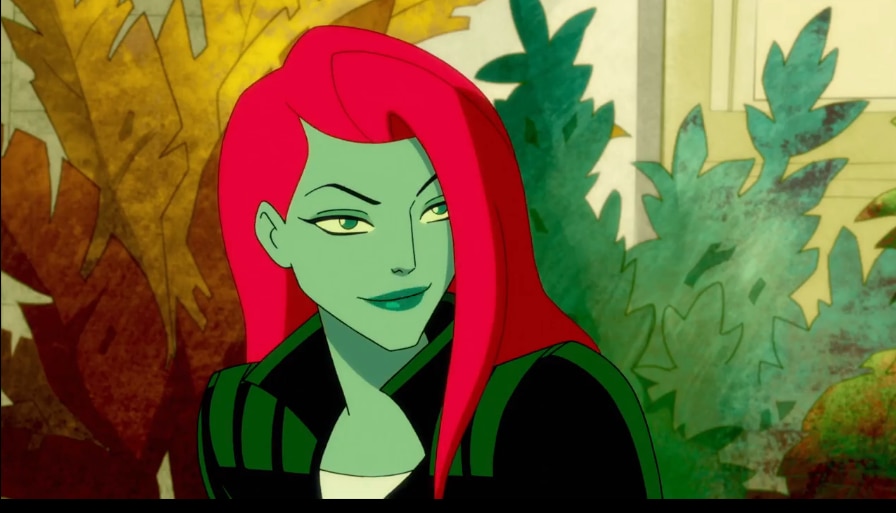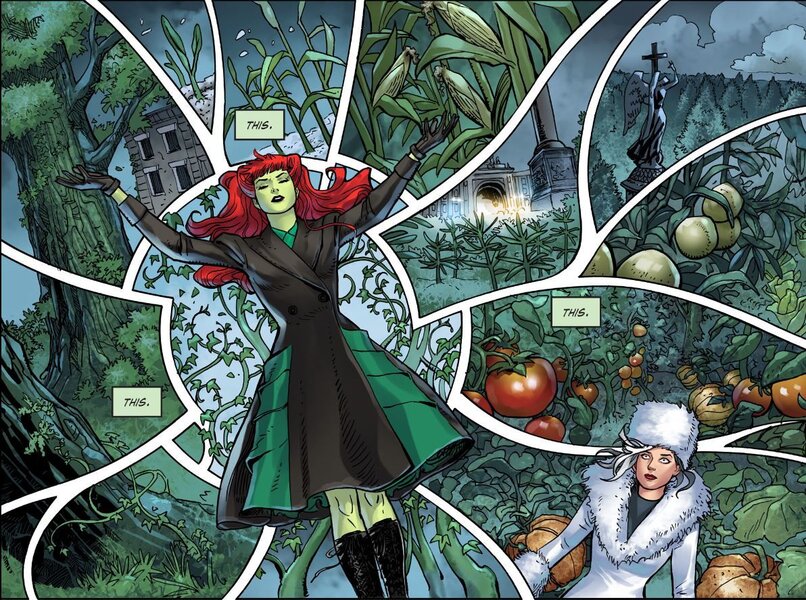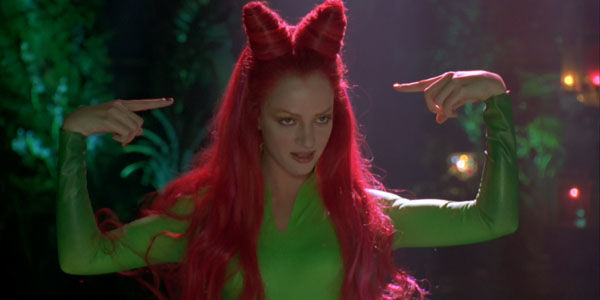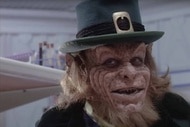Create a free profile to get unlimited access to exclusive videos, sweepstakes, and more!
Poison Ivy’s ecofeminism is the source of her power

Poison Ivy has finally entered the besieged Saint Petersburg where starving civilians have held the city against the Nazis. As she wanders the empty, famine-stricken streets, she thinks to herself: That desire to kill… to strike out… to avenge… it is hot as a breath in me and as close as the blood. I could kill. Anyone can kill.
As we read her words, we see the seeds she planted sprout and break through the ice and snow coating Saint Petersburg. They grow larger and larger, forming buds. It is an easy thing to cause harm, to punish, to destroy, she thinks. What can I do to help?
Ivy sheds a tear as she shows exactly what she can do. She can grow a forest of food, enough vegetables and fruits to feed a city. Row upon row of cabbage and corn and fruit trees appears and the beleaguered masses approach. Ivy falls to the ground, caught by Harley Quinn. "I can’t undo what came before. I can’t bring the dead back to life," she says in her lover's arms. “I can only try to save those living yet. I can only try to make life that little bit better."
Appearing in DC Bombshells #83, in an alternate universe where DC’s female heroes are all hot babes and fight Nazis, this is the Poison Ivy commonly talked about in ecofeminist and queer circles. She's not the erratic femme fatale who uses her feminine wiles to ensnare heroes and villains alike that she's often portrayed to be, but rather the passionate, rage-filled (and rightfully so!) queer ecofeminist who uses her powers to help plants, the planet, and people — and when necessary she isn't afraid to get her hands dirty, so to speak.
As both a botanist and the superpowered Poison Ivy, Dr. Pamela Isley has long been defined by her commitment to the planet. (When Ivy first appeared in Batman #181 in 1966, she cared little for plants or the environment, except in her outfits. She was intended to be a parody of feminists at the time, though, so *fart noise*.) That same commitment to ecofeminism has resulted in Isley being villainized time and again, both by characters within her narrative and by the larger world.
While there are various possible origins for Ivy's plant-manipulation and anti-toxin powers — including a mystical connection to the Green — her power derives from her ecofeminism and her values. It's an important differentiation. While her powers give Ivy unique abilities and facilitate her actions, they aren't what makes her truly strong, nor do they explain why she takes the actions she does. That's all Ivy. Those are all decisions made based on her convictions.
Ivy's ecofeminism is evident in almost every representation to varying degrees, though Bombshells may offer the most salient representation of her philosophy — and her evolution as a character.
When she first learns of what the Nazis have done to Saint Petersburg, Poison Ivy swears she'll have vengeance, but she changes course when she meets a Jewish girl named Miriam in the Berlin ghetto. It turns out that Miriam is the Shazam of the Bombshells universe and when she decides to spare the Nazis and free her people, Ivy is given pause.
In the above scene, as she's sowing seeds, she thinks, The girl in the ghetto had more cause than I and she did not take a single life. Instead, she did something no one else can do.
Ivy reframes the situation and figures out what she can offer, how she can be a part of a solution.
This is exactly what ecofeminism is about. Ivy's actions are anti-fascist, anti-patriarchal, planet-focused, and rooted in collective power. She learns from others, even a child. She chooses life over death, bringing food to those who are being attacked. She also chooses connection, not just with the people she's helping but with her lover Harley. This is an Ivy who lives her values no matter the cost.
That's not to say Ivy doesn't sometimes take these values to murderous extremes in other representations, but one has to wonder: Is that Ivy? Or is that the creators trying to villainize ecofeminism? And even if it is Ivy, is it so wrong to want an unrepentant billionaire to pay for his crimes? And if no one will make him pay, who's to say Ivy shouldn't? Isn't that Batman’s whole freaking deal?
In the end, that's the continual challenge with Poison Ivy. Much of the writing of her is deeply rooted in comic writers' own problematic perceptions — or outright hatred toward — women, queer folks, and the planet. So, Ivy is often best served by looking at popular adaptations of the character — or alternate world representations such as Bombshells.
The Ivy we see in Batman: The Animated Series, which aired in 1992, saves a plant from going extinct at the hands of Gotham's elite and then weaponizes it for a delightful reversal of fates. Batman gets mad at her for hurting a couple of fancy-schmancy jerks, but seriously, these dudes suck. Batman: TAS also showed Ivy and Harley's dynamic developing as Ivy supports Harley in leaving her abusive relationship.
In 1997's Batman & Robin, Uma Thurman gave us a lethal, sexy AF Ivy with the most bizarre and amazing old Hollywood accent I've ever heard. Though she starts with a clear goal of repopulating the earth with her plants, she gets derailed trying to loop Mr. Freeze into her plans. In the animated Harley Quinn, which premiered in 2019, Ivy becomes Harley's hippie roommate who really doesn't understand why she's called an eco-terrorist for caring about plants. Aside from the frustrating gal-palsing of the canonical polyamorous couple — PI+HQ 4EVA — this version of Ivy is *chef's kiss*.
In every single one of these representations, though, something problematic happens. In Harley Quinn, Ivy is both straight-washed and fridged — albeit temporarily. (Creators have teased a Harlivy romance in Season 2, but I'll wait until it airs to jump for joy, mkay?) In Batman & Robin, Ivy is debilitated by her own plant — that she moments ago just rode in on? — and imprisoned at Arkham Asylum. In Batman: TAS, Ivy is often boiled down to the 1966 version of her: making her a temptress who seduces and hurts men, and it's OK to feel mixed about that portrayal. Tor published a great essay about rewatching the series and Ivy's problematic nature, but part of me loves her as a misandrist queerdo who can't help but use men's advances against them.
I'm not the first, nor will I be the last to point out that Poison Ivy's power derives from her queerness, her femininity, her commitment to the planet and plant life, and her willingness to do what it takes to protect the Green and those she cares about. The Poison Ivy League has been a vocal subgroup of comics fandom and we have them to thank for the gorgeous Vines N Roses: A Poison Ivy Fanzine, which you absolutely must go download — for free! — right now. In this beautiful and thoughtful zine, creators and Ivy fans share about what makes Ivy special and, by extension, what makes her such a powerful force in 2020.
Poison Ivy represents everything about feminism and ecofeminism in particular that we love. She's difficult. She's powerful. She cares. She loves. She fights. She's f***ing angry — and that's why we f***ing love her.
















